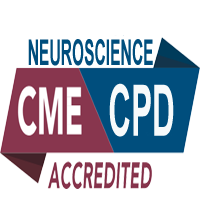
Jesse Weinberger
Mount Sinai School of Medicine, USA
Title: Coronary artery bypass surgery: Can stroke be prevented? Results of the syntax and freedom trial
Biography
Biography: Jesse Weinberger
Abstract
Stroke is a major complication of coronary artery bypass surgery (CABG), ranging from 1.3% to 4.5%, with a higher rate in diabetic patients of up to 5.2%. This detracts from the overall superiority of CABG over percutaneous coronary intervention (PCI) in patients with multiple complex coronary lesions. In the Syntax Trial, the overall rate of stroke was 2.2% for CABG and 0.6% for PCI, with 9 of 33 strokes occurring within 30 days of the procedure for CABG and 2/20 for PCI, with no difference in delayed stroke after thirty days. However, 3 of the 9 perioperative strokes occurred prior to the bypass surgery and were included in the intention to treat analysis. In the FREEDOM Trial with a population confined to diabetic patients, the incidence of stroke was 5.2% for CABG and 2.4% for PCI, with 16/37 CABG strokes within 30 days and 3/22 PCI strokes within thirty days, but no difference in delayed stroke after thirty days. The only pre-procedural risk factors significantly associated with perioperative stroke were history of arrhythmia 8/59 13.6% p<0.05 and warfarin use at baseline 8 (13.6%) p<0.05. These results suggest that perioperative stroke during CABG is related to withdrawal of antithrombotic therapy for stroke prophylaxis. This may provide an opportunity for prevention of stroke during coronary bypass surgery.

